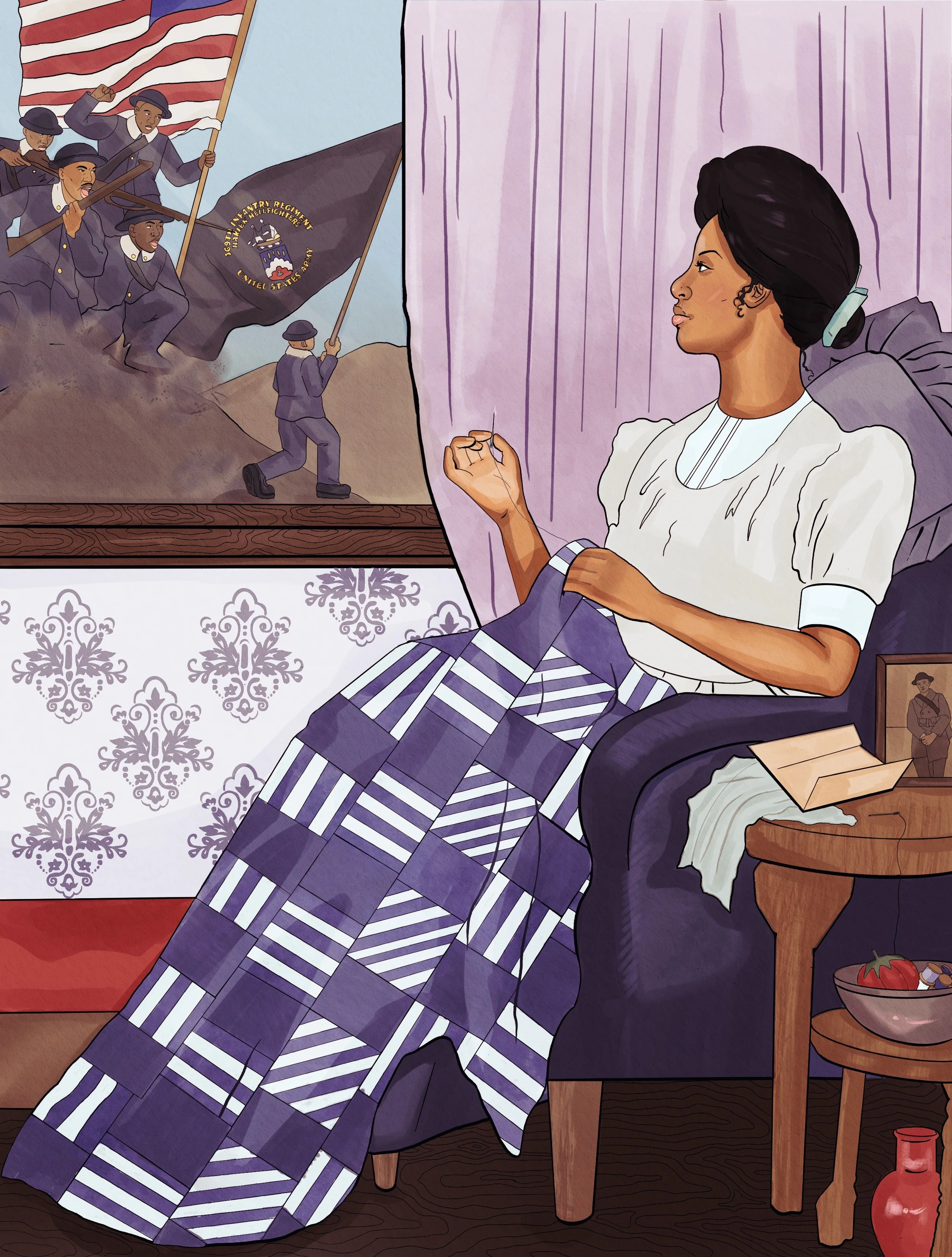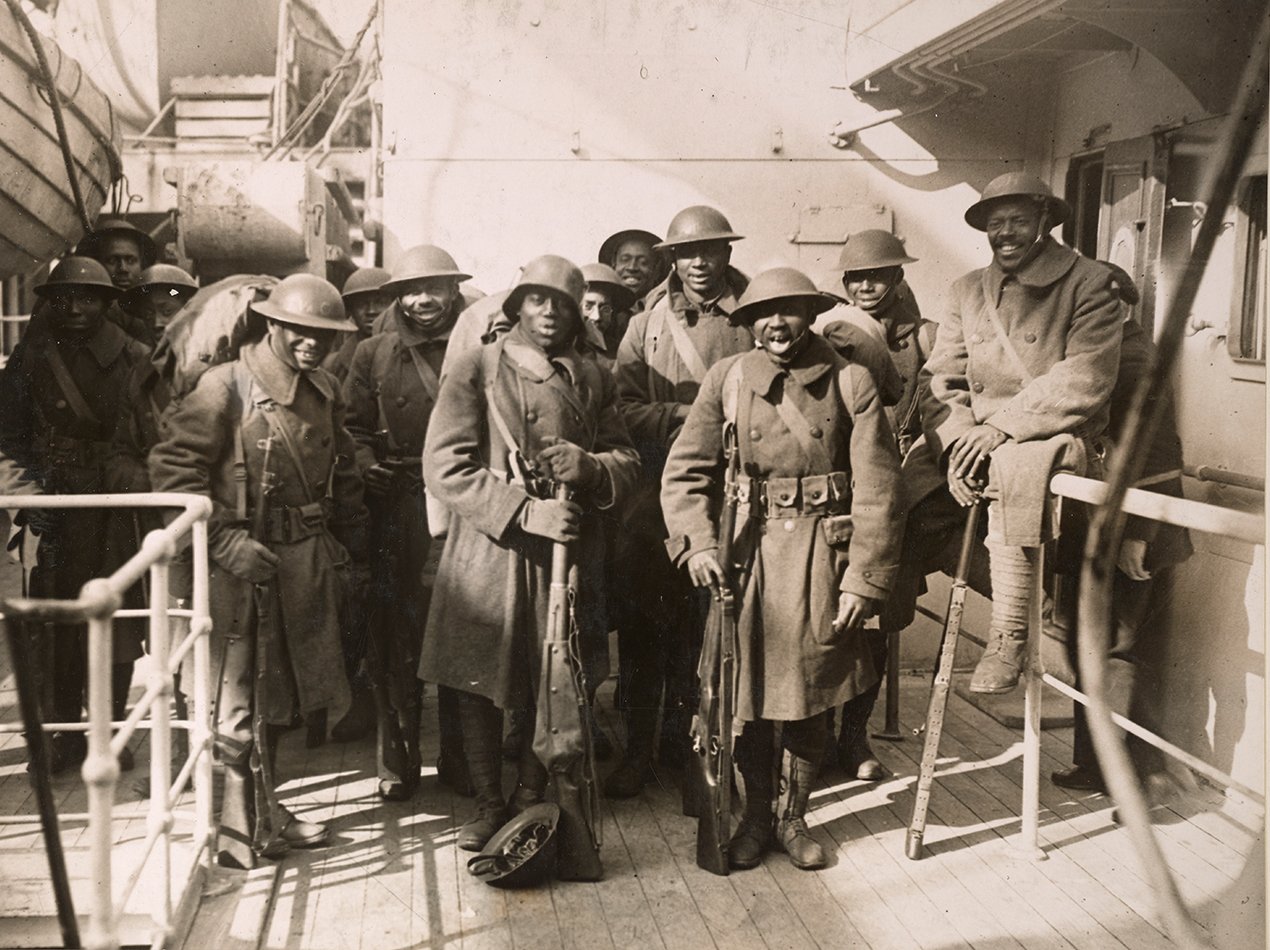
“I SIT AND SEW”
by ALICE DUNBAR-NELSON
Drawing by Taylor McManus. Colored Illustration by Miles Willaims.
inspired by Alice Dunbar-Nelson's "I Sit and Sew"
I Sit and Sew
by Alice Dunbar-Nelson
I sit and sew—a useless task it seems,
My hands grown tired, my head weighed down with dreams—
The panoply of war, the martial tred of men,
Grim-faced, stern-eyed, gazing beyond the ken
Of lesser souls, whose eyes have not seen Death,
Nor learned to hold their lives but as a breath—
But—I must sit and sew.
I sit and sew—my heart aches with desire—
That pageant terrible, that fiercely pouring fire
On wasted fields, and writhing grotesque things
Once men. My soul in pity flings
Appealing cries, yearning only to go
There in that holocaust of hell, those fields of woe—
But—I must sit and sew.
The little useless seam, the idle patch;
Why dream I here beneath my homely thatch,
When there they lie in sodden mud and rain,
Pitifully calling me, the quick ones and the slain?
You need me, Christ! It is no roseate dream
That beckons me—this pretty futile seam,
It stifles me—God, must I sit and sew?

The all-Black 369th, or Harlem Hellfighters, pose on the boat home from World War I after fighting valiantly, Feb. 10, 1919.
Photo via National Archives, originally captured by Western Newspapers Union
A Guide for “I Sit and Sew”
A committed activist, Alice Dunbar-Nelson joined the women’s suffrage movement, fought for anti-lynching legislation, advocated for Black children to be taught literature by Black authors and edited collections of work by Black writers and orators. During the First World War, she organized women’s groups to support war efforts and was active in the Circle of Negro War Relief, establishing a local chapter to assist Black soldiers and their families. Her war poem, “I Sit and Sew” (1918) is her most frequently anthologized work.



